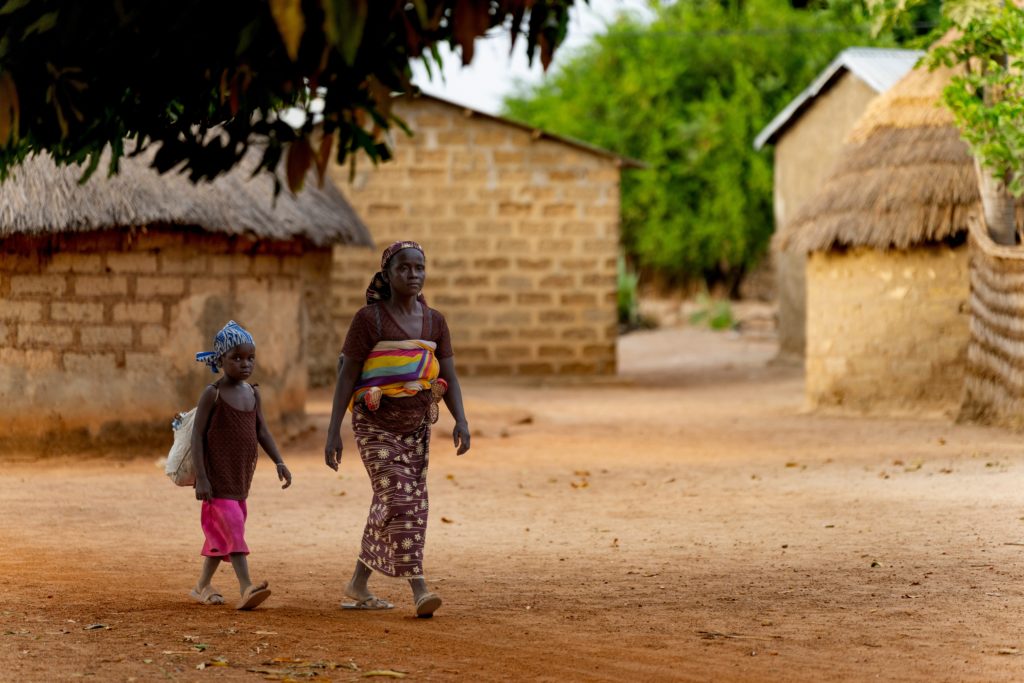Every child has the right to an identity from birth. This fundamental human right is particularly significant for children, as it affirms their existence in society and acknowledges their uniqueness. A child’s identity encompasses several key elements, including a given name, surname, date of birth, gender, and nationality, all of which contribute to a child’s sense of self and place within their community. Recognizing and protecting this right is essential to ensuring the well-being and development of children worldwide.

Understanding the different components of identity
A child’s identity is composed of the following principal elements:
- Name and surname: From birth, every child is entitled to a name and surname (Child Rights International Network, n.d.; United Nations, 1989). Parents are responsible for reporting their newborn’s name, surname, and date of birth to the appropriate authorities (van der Straaten et al., 2013). Registration officially recognizes the existence of the child and formalizes their status in the eyes of the law (van der Straaten et al., 2013). Additionally, by being named and registered in official birth and death records, the child can establish filiation, indicating the biological connections linking them to their father and mother.
Names often carry deep cultural, familial, or religious significance, connecting children to their heritage and community (van der Straaten et al., 2013). In many cultures, the process of naming a child involves a significant ritual or ceremony, underscoring the importance of this aspect of identity.
- Nationality: From birth, a child has the right to a nationality, typically from their own or their parents’ country of birth (Child Rights International Network, n.d.; United Nations, 1989). Nationality can be obtained through two primary means:
- Jus sanguinis (by blood): The child inherits their parents’ nationality.
- Jus soli (by birth): The child acquires nationality based on the territory in which they are born, even if their parents hold a different nationality.
Nationality, confirmed and documented by means of a birth certificate, is a fundamental aspect of an individual’s life and an attribute of citizenship (United Nations, 1948). It establishes an individual’s affiliation with a nation and provides them with a sense of belonging and personal history, allowing them to understand their place in their family, community, and the broader world. This sense of belonging is crucial for psychological and emotional development, contributing to a child’s welfare and self-esteem. The right to nationality is also crucial for preventing statelessness, a condition that can leave children without access to basic rights and services.
- Family relations: This element encompasses the right to know one’s parents and to receive their care, as stipulated in the Convention on the Rights of the Child (CRC), which recognizes the profound impact that family connections have on a child’s development and sense of self (Child Rights International Network, n.d.; United Nations, 1989). This aspect of identity extends beyond the immediate family to include extended family relationships and, in some cultures, clan or tribal affiliations.
- Cultural identity: Children have the right to preserve their cultural, religious, and linguistic heritage (United Nations, 1989). The right to practice their religion, speak their native language, and participate in cultural traditions is also a significant aspect of a child’s right to identity (Apland et al., 2014). This is particularly important for children from minority or indigenous groups, who may struggle to preserve their cultural identities within the broader society.
Legal instruments that prioritize the right to identity
The right to identity is enshrined in various international legal instruments.
Convention on the Rights of the Child
- Article 7: Every child has the right to be registered promptly after birth, to have a name, to obtain a nationality, and to know and receive care from their parents so far as possible (United Nations, 1989).
- Article 8: States must uphold the child’s right to maintain their identity, which includes nationality, name, and family relationships recognized by law, without unlawful interference (Child Rights International Network, n.d.; United Nations, 1989). If a child is unlawfully deprived of any or all aspects of their identity, states are required to provide the necessary support and protection to help restore the child’s identity (Child Rights International Network, n.d.; United Nations, 1989).
Universal Declaration of Human Rights
- Article 15: Everyone has the right to a nationality (United Nations, 1948).
International Covenant on Civil and Political Rights
- Article 24: Every child has the right to be registered immediately after birth, to be named, and to obtain a nationality (United Nations, 1966).
Legal identities for children

Recording a child’s birth and assigning them a nationality grants them legal recognition. This means they will be officially recognized as members of society with rights and obligations (Apland et al., 2014; Dambach, 2022). However, significant regional disparities exist, with South Asia and Sub-Saharan Africa accounting for the majority of unregistered children (IN Groupe, n.d.). Without proper documentation, children may be denied entry to schools or access to medical care, severely impacting their health and future prospects (United Nations Children’s Fund [UNICEF], 2019a).
In many countries, birth registration is a prerequisite for obtaining other forms of identification, such as national identity cards or passports, which are often required to access various services and opportunities throughout life. A legal identity also ensures that children receive age-appropriate legal protection, which is crucial in cases of abuse, exploitation, or conflict with the law (Dambach, 2022). For instance, without proof of age, children may be treated as adults in the justice system, depriving them of the special protections afforded to minors.
Judicial protection
A legally recognized identity allows children to benefit from the legal protection provided by their parents and the state. Conversely, children without a recognized identity often become invisible in the eyes of society and the law. They may not receive the protection and social services essential for their growth and welfare. This lack of recognition can leave them vulnerable to various forms of maltreatment and exploitation (UNICEF, 2019a), including illegal adoption, child labor, trafficking, and forced marriage (van der Straaten et al., 2013).
Furthermore, if a child becomes involved in delinquent behavior, their legal identity ensures they benefit from juvenile justice programs suited to their age, maturity, and understanding. This also prevents the child from being subjected to disproportionate punishments or harsh penalties deemed cruel or inappropriate for their age (United Nations, 1989). For instance, children are protected from facing the death penalty or life imprisonment without the option of parole, as stipulated in Article 37 of the CRC (United Nations, 1989).
The importance of identity in providing legal protection is further emphasized by the Guidelines for the Alternative Care of Children, adopted by the UN General Assembly in 2009 (United Nations General Assembly, 2009). These guidelines stress the need for proper documentation and identity preservation for children in alternative care settings, recognizing that identity is crucial for ensuring appropriate care and protection (United Nations General Assembly, 2009).
Global challenges
Birth registration
One of the primary challenges in implementing children’s right to identity is ensuring universal birth registration. The importance of birth registration has been acknowledged in the UN’s Sustainable Development Goals. Specifically, Target 16.9 aims to ensure that everyone has a legal identity, with birth registration being a key component of this goal, to be achieved by 2030 (United Nations High Commissioner for Refugees [UNHCR], n.d.).
Approximately 237 million children under five years old do not have birth certificates (UNICEF, 2019a; Veridos GmbH, 2023). As of 2019, an estimated 166 million children in this age group were not registered at birth (UNHCR, n.d.; UNICEF, 2019a). In the Asia-Pacific region alone, approximately 65 million children under five years were unregistered, with 97 million lacking birth certificates, according to UNICEF data from 2021 (Child Identity Protection, 2022).
This points to the obstacles that persist in realizing every child’s right to identity, including inadequate registration systems in developing countries; displacement due to conflict or natural disasters; and discrimination based on race, ethnicity, religion, or other factors. Poverty and marginalization often hinder access to registration services, while a lack of awareness about the importance of registration further contributes to this issue (UNICEF, 2019a, 2019b).
These barriers are particularly pronounced for vulnerable and marginalized children, as seen in Pakistan, where approximately 60 million children lack registered birth certificates (Idris, 2021; World Federation of Advertisers [WFA], 2021). This absence of legal documentation prevents children from accessing essential services, such as medical care, social security, and public education, while also leaving them vulnerable to child marriage, child labor, and trafficking. The issue is particularly acute in rural areas, where factors such as illiteracy and lack of awareness about the registration process contribute to the problem, especially among vulnerable groups like Afghan refugees in Pakistan (WFA, 2021).
Reproductive technologies
The issue of children’s right to identity becomes even more complex in modern contexts such as reproductive technologies, which raise questions about their right to know their biological origins (Blyth & Farrand, 2004). The use of anonymous sperm and egg donation obstructs a child’s right to know their biological origins as part of their identity (Blyth & Farrand, 2004). This has led to debates about the balance between donor privacy and a child’s right to information about their genetic heritage. As of 2019, approximately eight million children have been born through anonymous donations of sperm and oocytes (De Sutter, 2019).
Legal challenges in identity issues
When several states are involved, legal disputes can occur regarding which courts or authorities have jurisdiction to address identity issues and which laws should be applied (Child Identity Protection, n.d.). This situation can become more complex if information about a child’s origins has been produced through unlawful means or is not securely stored. In some instances, a child’s original identity may be altered improperly or illegally, and identity-related information may not be preserved or easily retrievable (Child Identity Protection, n.d.). The consequences of such issues can severely affect a child’s future, making it difficult for them to assert their rights, access vital services, or establish a clear legal identity.
Statelessness and identity risks

Many children are at risk of being stateless, particularly in contexts of migration and displacement, or when their parents have different nationalities. Children born in displacement situations face unique barriers to registering their births and acquiring nationalities (European Network on Statelessness, 2020). These barriers often stem from stringent documentation requirements, weak civil registration systems in transit countries, or discriminatory laws and practices (Albarazi & van Waas, n.d.).
Refugee children are particularly vulnerable to statelessness when born outside their parents’ country of origin, especially if they are born in a country in which nationality is not obtained by being born in the territory (European Network on Statelessness, 2020). This risk is compounded for refugees who cannot approach the authorities of their country of origin to establish their children’s nationality, as it may jeopardize their safety or international protection status (European Network on Statelessness, 2020).
Separated or unaccompanied children who are on the move also face heightened risks of statelessness, as they frequently encounter challenges in verifying their identity and demonstrating their connections to their parents or country of origin (European Network on Statelessness, 2020). Children from families with complex histories of displacement, such as Afghan refugees who have lived in Iran for generations before moving to Europe, often face significant difficulties in proving their nationality (European Network on Statelessness, 2020).
This can increase the risk of statelessness for their children (European Network on Statelessness, 2020). In addition, children from disadvantaged groups, such as cultural and racial minorities and those with disabilities, often face “double discrimination” based on both their age and other characteristics such as their ethnicity, socioeconomic status, gender, or disability (Daly et al., 2016). This can make it even more challenging to protect their right to identity and ensure their full participation in society.
Global initiatives
Campaigns
Several initiatives are underway globally to address the challenges of ensuring children’s right to identity. Countries such as Cameroon are organizing campaigns to promote universal birth registration and tackle the backlog of unregistered children (Child Identity Protection, 2024). These efforts aim to increase awareness and improve access to birth registration services.
Education and awareness
Education and awareness initiatives also play a crucial role. Organizations such as Amnesty International UK are developing educational resources to inform children about their rights, including the right to identity (Amnesty International UK, 2023). These efforts empower individuals with knowledge about their rights and the importance of legal identity.
Legal reforms
Legal reforms are being implemented in some countries to better protect children’s right to identity, particularly in cases of adoption or assisted reproduction. For example, Estonia has transitioned to a fully electronic population register, which incorporates vital statistics data, thereby streamlining the birth registration process (World Bank, 2019).
Birth registration systems
Many governments and organizations, such as Child Identity Protection, are working to address the challenges through various initiatives. Countries are enhancing their birth registration systems, often with support from international organizations. This includes digitizing registration processes, training registration officials, and establishing more accessible registration points (van der Straaten et al., 2013). In some countries like South Africa and Colombia, mobile registration units have been deployed to reach remote or underserved areas, providing registration services directly to families who might otherwise struggle to access them (Apland et al., 2014; International Labour Office, 2015).
International cooperation
International cooperation is also crucial for protecting the identity rights of children on the move, especially in the context of increasing global migration and displacement (UNHCR, 2023). This includes efforts to ensure that refugee and migrant children have access to birth registration and documentation, even when they are outside their country of origin.
Investing in every child’s identity

The right to identity is essential for children’s well-being and development. It provides them with protection, access to services, and recognition as rights-holders in society. While significant progress has been made in recognizing and safeguarding this right, challenges persist, particularly for vulnerable and marginalized children.
Global efforts must continue to ensure that every child’s right to a name, nationality, and legal identity is guaranteed, regardless of their circumstances or background. This requires a steadfast commitment from governments, international organizations, and civil society, along with innovative approaches to address both longstanding and emerging issues.
Written by Or Salama
Internally proofread by Aditi Partha
Last updated on December 4, 2024
References:
Albarazi, Z., & van Waas, L. (n.d.). Statelessness and displacement. Retrieved from the Norwegian Refugee Council at https://www.nrc.no/globalassets/pdf/reports/statelessness-and-displacement.pdf, accessed on November 2, 2024.
Amnesty International UK. (2023, May 17). Education resources on children’s rights. Retrieved from Amnesty International UK at https://www.amnesty.org.uk/education-resources-childrens-human-rights, accessed on October 30, 2024.
Apland, K., Blitz, B., Hamilton, C., Lagaay, M., Lakshman, R. W. D., & Yarrow, E. (2014, May). Birth registration and children’s rights: A complex story. Retrieved from ResearchGate at https://www.researchgate.net/publication/266202969_Birth_Registration_and_Children’s_Rights_A_Complex_Story, accessed on November 3, 2024.
Blyth, E., & Farrand, A. (2004, June). Anonymity in donor-assisted conception and the UN Convention on the Rights of the Child. Retrieved from ResearchGate at https://www.researchgate.net/publication/249570466_Anonymity_in_donor-assisted_conception_and_the_UN_Convention_on_the_Rights_of_the_Child, accessed on December 2, 2024.
Child Identity Protection. (2022, January 28). Progress and challenges for birth registration and delivery of birth certificates. Retrieved from Child Identity Protection at https://www.child-identity.org/progress-and-challenges-for-birth-registration-and-delivery-of-birth-certificates/, accessed on November 3, 2024.
Child Identity Protection. (2024, May 2). Quest to ensure #everychild is #visible. Retrieved from Child Identity Protection at https://www.child-identity.org/quest-to-ensure-everychild-is-visible/, accessed on November 1, 2024.
Child Identity Protection. (n.d.). What are the implementation challenges to respecting identity rights? Retrieved from Child Identity Protection at https://www.child-identity.org/implementation-challenges/, accessed on November 2, 2024.
Child Rights International Network (CRIN). (n.d.). Article 8: Preservation of identity. Retrieved from CRIN at https://archive.crin.org/en/home/rights/convention/articles/article-8-preservation-identity.html, accessed on November 2, 2024.
Daly, A., Ruxton, S., & Schuurman, M. (2016, March). Challenges to children’s rights today: What do children think? Retrieved from the Council of Europe at https://rm.coe.int/1680643ded, accessed on November 2, 2024.
Dambach, M. (2022). Policy Brief 2: Child’s right to identity in alternative care. Retrieved from Child Identity Protection at https://www.child-identity.org/images/files/CHIP-Policy-Brief-AlternativeCare-EN.pdf, accessed on November 2, 2024.
De Sutter, P. (2019, February 20). Anonymous donation of sperm and oocytes: balancing the rights of parents, donors and children. Retrieved from Better Care Network at https://bettercarenetwork.org/library/principles-of-good-care-practices/parent-participation/anonymous-donation-of-sperm-and-oocytes-balancing-the-rights-of-parents-donors-and-children, accessed on November 1, 2024.
European Network on Statelessness. (2020). No child should be stateless: Ensuring the right to a nationality for children in migration in Europe. Retrieved from the European Network on Statelessness at https://www.statelessness.eu/sites/default/files/2020-09/ENS_Right-to-a-nationality-for-children-in-migration.pdf, accessed on November 2, 2024.
Idris, I. (2021, July 16). Increasing birth registration of children from marginalised groups in Pakistan. Retrieved from reliefweb at https://reliefweb.int/report/pakistan/increasing-birth-registration-children-marginalised-groups-pakistan, accessed on November 2, 2024.
IN Groupe. (n.d.). A legal identity at birth, a right for every child. Retrieved from IN Groupe at https://ingroupe.com/insights/legal-identity-birth-right-child/, accessed on November 2, 2024.
International Labour Office. (2015, May). ICROP: Reaching out to rural poor through mobile service units. Retrieved form Social Protection platform at https://www.social-protection.org/gimi/Media.action;jsessionid=Q5KETOXKm3jiVE30E3kKkN8bj6PEpUEF9KAMaZDrYolQtJpQPq1_!-458942951?id=14947, accessed on December 2, 2024.
United Nations. (1948, December 10). Universal Declaration of Human Rights. Retrieved from the United Nations at https://www.un.org/en/about-us/universal-declaration-of-human-rights, accessed on November 1, 2024.
United Nations. (1966, December 16). International Covenant on Civil and Political Rights. Retrieved from the Office of the High Commissioner for Human Rights at https://www.ohchr.org/en/instruments-mechanisms/instruments/international-covenant-civil-and-political-rights, accessed on November 1, 2024.
United Nations. (1989, November 20). Convention on the Rights of the Child. Retrieved from the Office of the High Commissioner for Human Rights at https://www.ohchr.org/en/instruments-mechanisms/instruments/convention-rights-child, accessed on November 1, 2024.
United Nations Children’s Fund (UNICEF). (2019a, December). Birth registration for every child by 2030: Are we on track? Retrieved from UNICEF at https://www.unicef.de/_cae/resource/blob/208020/1608b40477f988a75105f96cd4d3d1f0/birth-registration-for-every-child-by-2030-are-we-on-track–data.pdf, accessed on November 3, 2024.
United Nations Children’s Fund (UNICEF). (2019b, December 10). Despite significant increase in birth registration, a quarter of the world’s children remain ‘invisible’. Retrieved from UNICEF at https://www.unicef.org/press-releases/despite-significant-increase-birth-registration-quarter-worlds-children-remain, accessed on November 3, 2024.
United Nations General Assembly. (2009). Guidelines for the alternative care of children: Resolution / adopted by the General Assembly (A/RES/64/142). Retrieved from the United Nations Digital Library at https://digitallibrary.un.org/record/673583, accessed on October 29, 2024.
United Nations High Commissioner for Refugees (UNHCR). (2023, June 14). Global trends: Forced displacement in 2022. Retrieved from UNHCR at https://www.unhcr.org/sites/default/files/2023-06/global-trends-report-2022.pdf, accessed on November 3, 2024.
United Nations High Commissioner for Refugees (UNHCR). (n.d.). Born into a refugee life. Retrieved from UNHCR at https://www.unhcr.org/refugee-statistics/insights/explainers/children-born-into-refugee-life.html, accessed on November 3, 2024.
van der Straaten, J., Balagopal, G., Civil Registration Center for Development, & United Nations Children’s Fund (UNICEF). (2013). A passport to protection: A guide to birth registration programming. Retrieved from Social Science Research Network at https://papers.ssrn.com/sol3/papers.cfm?abstract_id=3989367, accessed on November 6, 2024.
Veridos GmbH. (2023, December 20). Far too many children still don’t have birth certificates. Retrieved form Veridos at https://www.veridos.com/en/news/far-too-many-children-still-don-t-have-birth-certificates.html, accessed on November 3, 2024.
World Bank. (2019, August). Options for digital birth certificates. Retrieved from the World Bank at https://documents1.worldbank.org/curated/fr/807381570770265619/text/Options-for-Digital-Birth-Certificates.txt, accessed on November 3, 2024.
World Federation of Advertisers (WFA). (2021, October 4). Insight & strategy: Naming the invisible by digital birth registration. Retrieved from WFA at https://wfanet.org/knowledge/diversity-and-inclusion/item/2021/10/13/Insight–Strategy-Naming-the-Invisible-by-Digital-Birth-Registration, accessed on December 2, 2024.

